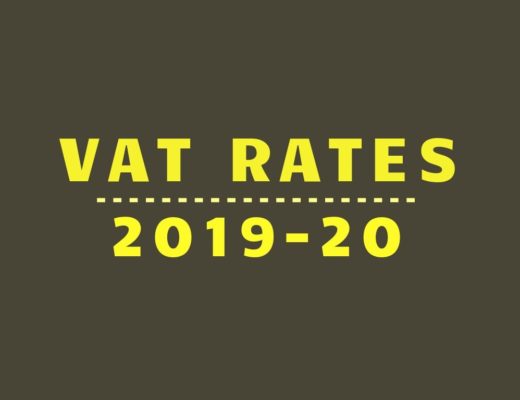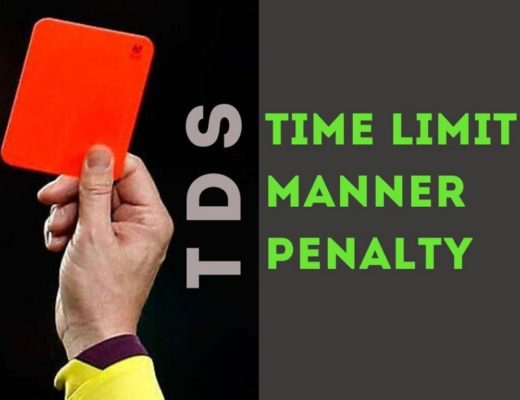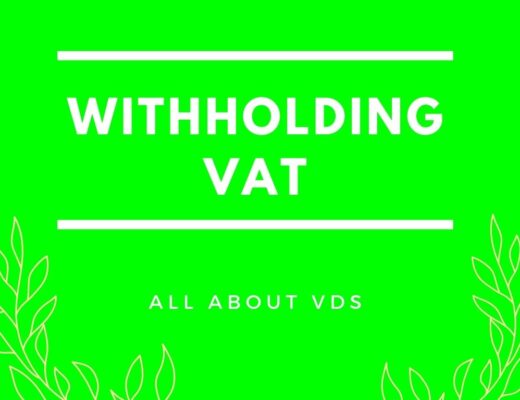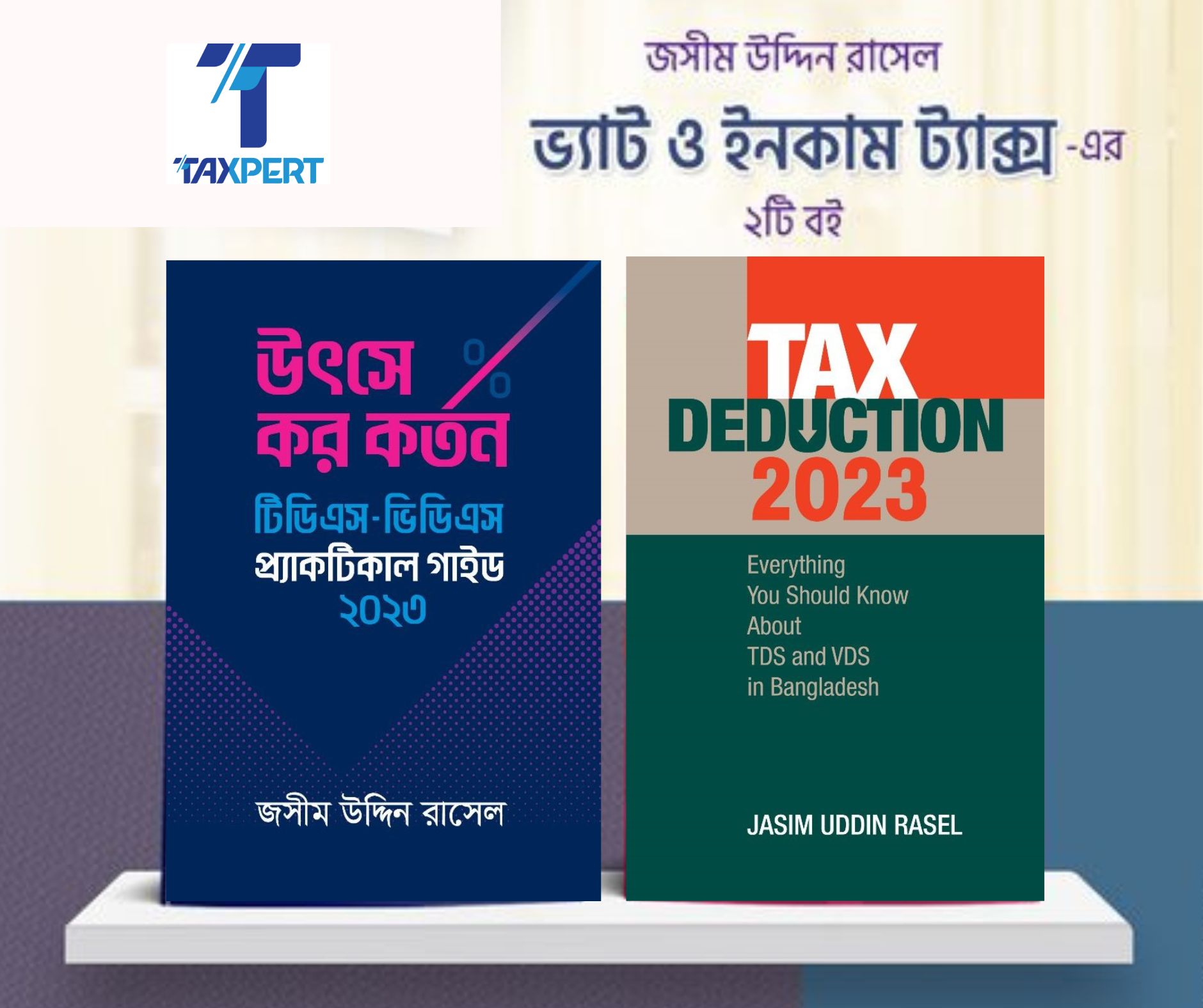What are the major changes in income tax through Finance Act 2021 for personal and corporate taxpayers in Bangladesh?
Finance Act 2021 has been enacted from 01 July 2021 which has changed the direct tax and indirect tax. And the changes will impact in the financial year 2021-22.
In this article, today you will know the salient features of Finance Act 2021 for direct tax portion i.e., income tax which will divided into personal tax and corporate tax. And the major changes in VAT and SD has been covered in another article. To get the regular update about important tax issues, you may subscribe to our newsletter by registering your name and email.
Read also…
VAT Exempted Goods and Services List FY 2021-22
The discussion will be going on brief so that you could get an overview in a very short time.
So, let’s start!
PERSONAL TAX
Tax-free Threshold and Tax Rate
There is no change in tax-free threshold and slab wise tax rates for individual taxpayers. You know, last year through Finance Act 2020, tax-free limit had been increased from BDT 2.5 lakh to BDT 3 lakh. And the starting tax rate reduced to 5% from 10%. Slab wise tax rates and tax-free threshold have been presented in the annexure 01 and 03 below of this article respectively.
The notable inclusion in the Finance Act 2021 is that third gender has been included with the women and senior citizen aged 65 years and above. The tax-free limit for these taxpayers is BDT 3.5 lakh. Third gender taxpayer will also calculate tax liability if the taxable income exceeded this limit.
Tax Courses: Return Preparation for Individual Taxpayers
Twelve-digit Taxpayer’s Identification Number (TIN) shall obtain if any person is engaged in purchasing savings instruments (Sanchayapatra) of exceeding BDT 2 lakhs; opening postal savings accounts of exceeding BDT 2 lakhs and obtaining registration of co-operative society. In these three cases, the related person shall obtain TIN certificate.
And another major change through Finance Act 2021 is that investment allowance limit has been reduced to BDT 1 crore. You know that investment allowance shall be considered the lower amount among three figures i.e., 25% of total taxable income or actual investment or BDT 1.5 crore. And as per Finance Act 2021, it will be BDT 1 crore instead of BDT 1.5 crore. So, you have to keep in mind this amount during calculation of investment allowance. Though this change will not affect the majority taxpayers. This will affect only the high-income earner.
Statement of assets, liabilities and expenses
New two addition has been included in the requirements for submission of assets, liabilities and expenses statement by individual assessee. Non-resident Bangladeshi and non-Bangladeshi shall also require to submit this statement from the upcoming tax return filing by 30 November 2021.
They do not require to mention the global information relating to assets, liabilities and expenses. The organization who employs foreign national shall ensure that their such employees have included the statement relating to Bangladesh. Based on the amount of net wealth which is provided in the statement of assets, liabilities and expenses, the rate of surcharge shall be applied to calculate the amount of surcharge. Slab-wise surcharge rates has also been changed by the Finance Act 2021.
Surcharge rates
The Finance Act 2021 will also affect the wealthy person during calculation of surcharge on their tax liability. You know that if amount of net wealth exceeds BDT 3 crore, then he shall pay surcharge on his tax liability using the prescribed rate. The surcharge calculation will also be changed from next year. There will be no minimum surcharge but no surcharge shall be paid if the taxpayer’s taxable income does not exceed the tax-free limit. Surcharge rates are provided in annexure 4.
Special tax treatments of undisclosed income
Special tax treatments in respect of undisclosed income for individual taxpayers has been extended for another income year but there is significant increase of tax rates. And one area of investment has been also extended through Finance Act 2021 for undisclosed income.
Tax shall pay by individual assessee at 25% instead of 10% on his investment in stock market. There was much talk about the tax rate at 10% for the last income year, and taxpayers were saying hiding income is more benefited than paying tax honestly. Because, they are paying tax at 10% whereas an honest taxpayer is paying tax at highest slab rate at 25%. Hope, the move to 25% from 10% will bring in a same field for every taxpayer.
However, additionally, a penalty at 5% shall also be applicable on the amount of tax calculated on the undisclosed income which will be invested in the securities.
Suppose, an individual assessee has disclosed his income BDT 1,000,000 in the income year 2021-22 which has been invested in the listed securities. So, he shall pay BDT 250,000 as tax within 30 days from the date of such investment. And 5% penalty shall be calculated on BDT 250,000 which is BDT 12,500. So, in total the assessee shall pay BDT 262,500 by pay order and automated challan.
Another changes, there was a condition to remain the investment for three years in the capital market, otherwise the withdrawn amount shall be deemed income in the year of withdrawn. But now, the time period for investment has been reduced to one year and 10% penalty shall be applicable on the withdrawn amount. As the individual assessee is paying tax at the highest rate in the income year when he is investing his undisclosed income, so the income shall not be considered for deemed income again in the year of investment withdrawn from the capital market.
In case of undisclosed property and cash, the amount of tax remains same for the land, building or apartment but the rate of tax increased to 25% from 10% against undisclosed cash, bank deposits, financial schemes and instruments, all kinds of deposits or savings deposits, savings instruments or certificates.
And additionally, 5% penalty shall be applicable on the computed tax in the same manner as discussed in the above example. The tax including penalty shall be payable by pay order or automated challan.
A new investment area has been also included in tax law by Finance Act 2021 for undisclosed income of individual assessee. As per section 19AAAAAA, 10% tax shall pay by individual assessee if he invests in new industrial undertakings. A list of industrial undertakings has been provided under section 46BB which will enjoy tax exemption benefits for a certain period. So, you have understood from the above discussion that, the most benefited area of investment of undisclosed income is in new industrial undertakings. The initial tax rate is only 10% during the disclosed of income and there is no additional penalty at 5%. Moreover, tax exemption facilities will be enjoyed for a particular period.
These are the major changes for individual taxpayers through Finance Act 2021. But what are the major changes for corporate taxpayers?
CORPORATE TAX
Company Tax Rate
Last year, corporate tax rate reduced by 2.5% for both publicly traded and non-publicly traded company. Again, the rate is reduced by 2.5% for the above companies.
You know, in 2020, One Person Company (OPC) was introduced in Companies Act 1994 and the corporate tax rate for this new company is fixed at 25%. In other cases, corporate tax rate will remain unchanged. See the annexure 2 for corporate tax rates.
Tax Deducted at Source (TDS) and Advance Income Tax (AIT)
Tax deducted or collected at source has been changed in several areas. Each year after Finance Act, I publish full TDS rates with section reference in this blog. Please keep your eyes on this blog to get the full TDS rates.
You may know that if the payee does not have the TIN, then the tax rate shall be 50% higher under section 52. The Finance Act 2021 added new condition, if the payee does not receive payment by bank transfer or by MFS or any other digital means approved by the Bangladesh Bank then tax rate shall also be 50% higher under this section.
And another change has been made under this section which is “specified person”. The area of specified person has been extended. E-commerce platform includes with specified person. You know that specified person shall deduct tax under section 52 and in addition, you will find that specified person are responsible person to deduct tax at source. That’s why, it is important to know about the specified person to comply with tax deducted at source.

You also know that upto BDT 50,000 received by the beneficiary of the WPPF fund is tax free income but during making the payment to such beneficiary, 5% tax shall deduct at source by the employer. The Finance Act 2021 included two new conditions, if both the conditions are fulfilled then tax shall not be applicable under section 52DD, the receiver income is not taxable and he does not receive more than BDT 25,000 from WPPF.
The rate of tax at source for Stevedoring/berth operation under section 52AA has be changed. Now the tax rate shall be applicable at 10% on commission or fee if the base amount does not exceed BDT 2.5 million, otherwise 12% if the base amount exceeds BDT 2.5 million. And TDS shall be applicable at source at 1.5% and 2% respectively based on the above base amount.
You know, last year advance tax for the owners of private motor car had been increased significantly. This year there is no such increase but included the electric motor car based on kilowatt (kw). The amount of advance income tax on private motor car is provided in annexure 5.
Deduction not admissible under section 30
You know section 30 is most important for corporate taxpayer because any payment which is not complied with this section shall be disallowed subject to tax at proposed rate 30% which is huge. That’s why it is important to know the changes made in section 30.
Tax deduction at source, cash payment upto certain limit and payment through banking channel are the compliance requirements as per tax law. Upto last financial year, salary payment to employee having gross monthly salary of BDT 15,000 or more shall require to pay through crossed cheque or bank transfer by employer. But as per Finance Act 2021, monthly gross salary payment of BDT 20,000 or more instead of BDT 15,000 shall be made through bank transfer.
An explanation for ‘bank transfer’ has been provided by the Finance Act 2021, ‘bank transfer’ includes transfer of money by crossed cheque, mobile financial services or any other digital means approved by the Bangladesh Bank. Mobile financial services or digital platform approved by the Bangladesh Bank are new addition through Finance Act 2021.
And a new clause (ii) has been inserted under section 30 for payment against purchase of materials. As per new clause, any payment exceeding BDT 500,000 by a person against purchase of raw materials shall paid by bank transfer. You know it was BDT 50,000 till last financial year.
Set off of losses
Any loss in respect of any speculation business or any loss under the head Capital gains shall be set off only against such respective speculation business or any income under the head Capital gains. And also, any loss from any exempted income or enjoy reduced rate shall not be set off against any income from any source. There was an option to carry forward of loss in case of loss is not possible to set off fully in the income year but from now on, this benefit will not be applicable for the above losses.
Exemption for Industrial Undertakings
You know already there are 22 IT business under paragraph 33, Part A, Sixth Schedule of Income Tax Ordinance 1984. The Finance Act 2021 has extended the area of IT sectors for tax free facility upto 2024. The new areas are cloud service, system integration, e-learning platform, e-book publications, mobile application development service and IT Freelancing.
Section 82C: Minimum Tax
A minor change has been made in section 82C. The minimum tax rate on gross receipts shall be 0.25% instead of 0.50% in case of individual other than individual engaged in mobile phone operation or in the manufacturing of cigarette, bidi, chewing tobacco, smokeless tobacco or any other tobacco products, having gross receipts BDT 3crore or more.
And any more major changes in income tax…
One significant move is, taxpayment method to government treasury. Upto BDT 500,000 taxpayment to the government treasury shall be made through automated challan (A-challan) from banks or electronic payment (e-payment) using the NBR hosted website. It is a positive move which will help taxpayers to make the payment through automated system.
Depreciation rate under Third Schedule for general building and factory building shall be 5% and 10% instead of 10% and 20% respectively. So, your tax depreciation calculation will be changed now.
Tax exemption facility for 10 years has been proposed for IT hardware, light engineering, hospitals in specified areas. Hope, these sectors will attract new investment from entrepreneurs.
So, you have learned the major changes in income tax and in next article I will cover the indirect tax as I said earlier. So, keep your eyes on this blog.
Please note that this article is developed to give an overview of the major changes in income taxes of Bangladesh and does not cover the area to reach a decision solely based on it.
So, please rely on main tax related resources if any complexity arises during your decision making.
Annexure 1: Individual Taxpayers Tax Rates Other Than Companies
| Income slab | Tax Rate |
| On first BDT 300,000 | 0% |
| On next BDT 100,000 | 5% |
| On next BDT 300,000 | 10% |
| On next BDT 400,000 | 15% |
| On next BDT 500,000 | 20% |
| On the balance of total income | 25% |
| Income of non-resident | 30% |
Annexure 2: Company Tax Rate
| Description | Tax Rate |
| Publicly Traded Company | 22.5% |
| Non- Publicly Traded Company | 30% |
| One Person Company (OPC) | 25% |
| Publicly traded Bank, Insurance, Financial Institute (other than Merchant Bank) and Mobile Finance Services (MFS) | 37.5% |
| Non-publicly traded Bank, Insurance, Financial Institution (other than Merchant Bank) and Mobile Finance Services (MFS) | 40% |
| Merchant Bank | 37.5% |
| Publicly traded mobile phone company | 40% |
| Non- Publicly traded mobile phone company | 45% |
| Special Tax Rate | |
| Cigarette, bidi, zarda, chewing tobacco, gul or any other tobacco products manufacturers | 45% |
| Income of Co-operative Society | 15% |
| RMG factories having green building certification | 10% |
| RMG factories without having green building certification | 12% |
Annexure 3: Tax-Free Threshold For Individual Taxpayers
| Status | Amount (BDT) |
| General Taxpayers | 300,000 |
| Third gender, women and senior citizen aged 65 years and above | 350,000 |
| Person with disability | 450,000 |
| Gazette war-wounded freedom fighters | 475,000 |
Annexure 4: Surcharge Based on Disclosed Net Wealth of Individual Taxpayer
| Amount of net wealth | Rate on income tax |
| Upto BDT 3 crore | 0% |
| Exceeding BDT 3 crore to BDT 10 crore Or Ownership of more than one motor car; or Ownership of house property having an aggregate area of 8,000 square feet in a city corporation | 10% |
| Exceeding BDT 10 crore to BDT 20 crore | 20% |
| Exceeding BDT 20 crore to BDT 50 crore | 30% |
| Exceeding BDT 50 crore | 35% |
Annexure 5: Advance Tax for the Owners of Private Motor Car
| Type and engine capacity of motor car | Amount (BDT) |
| A car or a jeep, not exceeding 1,500 cc or 75kw | 25,000 |
| A car or a jeep, exceeding 1500cc or 75kw but not exceeding 2000cc or 100 kw | 50,000 |
| A car or a jeep, exceeding 2000cc or 100 kw but not exceeding 2500cc or 125 kw | 75,000 |
| A car or a jeep, exceeding 2500cc or 125 kw but not exceeding 3000cc or 150 kw | 125,000 |
| A car or a jeep, exceeding 3000cc or 150 kw but not exceeding 3500cc or 175 kw | 150,000 |
| A car or a jeep, exceeding 3500cc or 175 kw | 200,000 |
| A microbus | 30,000 |







No Comments